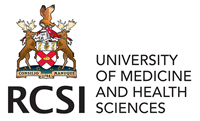Prof S Cryan
Applications accepted all year round
Competition Funded PhD Project (Students Worldwide)
About the Project
Mycobacterium tuberculosis (TB) is the primary infectious disease killer in the world. In 2016 alone 1.7million people died from TB and 10 million people fell ill [1]. It is the main cause of death related to antimicrobial resistance and the leading killer of patients with HIV. TB is primarily a pulmonary pathogen but current treatment regimens are based on oral and parenteral drug therapy requiring a minimum of 6-9 months for successful treatment. These treatments are lengthy, associated with a high risk of adverse drug reactions and poor patient adherence that is leading to multi-drug resistance (MDR-TB) strains emerging. Therefore, new therapies and treatment modalities are urgently required. By localising new and existing TB therapies to the lungs via aerosol, to target the site of TB infection in the alveolar macrophage (AM), the occurrence of these adverse events can be diminished/eliminated, patient dosing requirements reduced and clinical efficacy enhanced. Recent pharmacokinetic studies have shown that inhaled anti-tubercular drug formulations can achieve not only greater levels of concentration in the lungs than oral formulations but also have longer residence times.
The student will bas based in RCSI’S St Stephens’ Green campus but will have an opportunity to spend time in the clinical (St James Hospital) and industrial laboratories (Aerogen, Galway) of their co-supervisors. This project seeks to encapsulate innovative emerging TB therapies into inhalable delivery platforms designed for cell-specific targeting through additive manufacturing. Previous work by our group has investigated the key parameters required for targeting the macrophage using inhalable particle technology [2.3]. Working alongside a clinical research group in St James Hospital Dublin a range of novel host-directed [4] and peptide-based therapeutics that have emerged from research within our teams over the last number of years will first be assessed for their efficacy using a well-established in vitro TB infection model [5]. In the second stage of the project these lead therapeutics will be encapsulated into inhalable polymeric particles using additive manufacturing (3D PRINT) technology being developed within the Drug Delivery and Advanced Materials team in RCSI. These drug-loaded particles will be characterized pharmaceutically and their cellular targeting and efficacy assessed using well established advanced cellular imaging and infection models respectively [2, 4]. Key to the clinical use of inhalable therapies is integration with an appropriate inhaler device. Working with our industrial collaborators the inhalable therapies will be loaded into devices for aerosol testing including simulation modelling.
For truly advanced treatment modalities to be efficiently translated into the clinical environment a convergence of biomedical sciences and delivery platforms early in a research programme is becoming critical. Overall, this PhD project will integrate screening of novel TB therapies using state-of-the art cellular and biological models combined with pharmaceutical design, advanced additive manufacturing processes and medical device integration to support their clinical translation offering hope to the thousands of patients worldwide who die and fall ill daily due to TB.
References
1. who.int/tb/global-ministerial-conference/advocacy-materials/en/
2. Lawlor C et al Mol. Pharmaceutics, 2011, 8 (4), 1100–1112
3. Lawlor C et al Tuberculosis, 2011, 91 (1), 93–97
4. O'Connor G. et al., Advanced Drug Delivery Reviews 102, 2016, 33-54.
5. Lawlor C et al Mater Sci 2012 23(1):89-98.
6. Norman et al Advanced Drug Delivery Reviews 108, 2017, 39-50

 Continue with Facebook
Continue with Facebook

